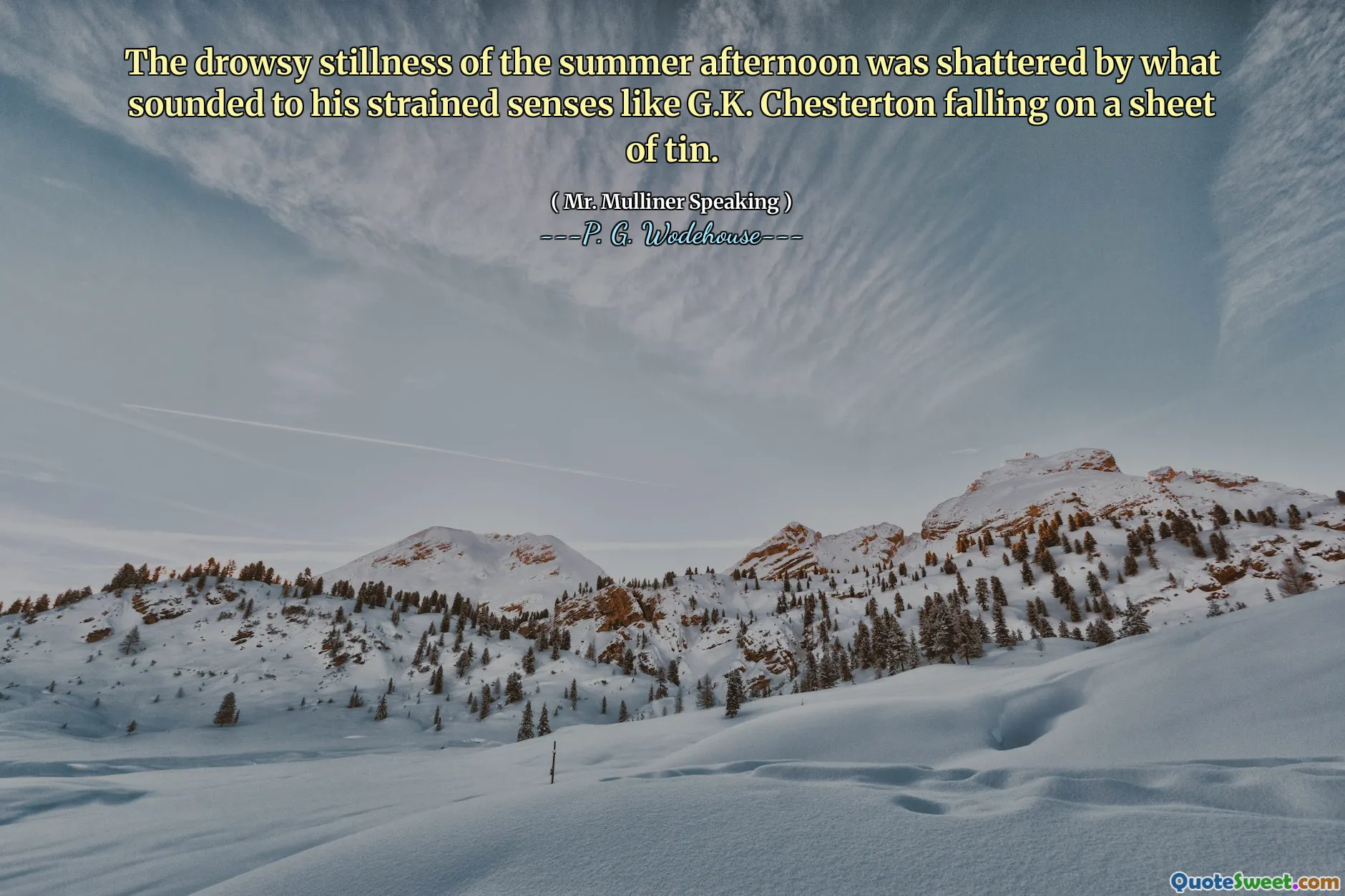
The drowsy stillness of the summer afternoon was shattered by what sounded to his strained senses like G.K. Chesterton falling on a sheet of tin.
This evocative quote vividly captures a tranquil summer afternoon abruptly disrupted by an unexpectedly loud and startling noise. The phrase 'drowsy stillness' immediately sets the scene of a peaceful, almost hypnotic moment in the day when nature seems to hold its breath. Such quietude often invites introspection and a sense of calm, but this serenity is disturbingly shattered by a discordant sound, which the narrator fancifully compares to G.K. Chesterton—known for his eccentric personality and lively voice—falling onto a sheet of tin. This simile vividly underscores the jarring nature of the noise, combining humor with a sharp sensory detail. The imagery conjures an auditory assault that jars the listener out of peaceful ignorance, reminding us how fragile or transient such stillness can be. It also humorously hints at the chaos and unpredictability lurking just beneath the surface of calm, perhaps reflective of life itself where moments of peace are often upended suddenly and surprisingly. The choice to compare the sound to Chesterton's fall adds a layer of whimsy and wit, emphasizing its comic absurdity. Such descriptions evoke a deeper reflection on how our environment can shift from tranquility to chaos in an instant, reminding us to cherish moments of calm while acknowledging their fleeting nature. It recounts a universal truth—peace is often provisional—and celebrates the lively, unpredictable rhythm of life, with all its sudden interruptions and surprises.






